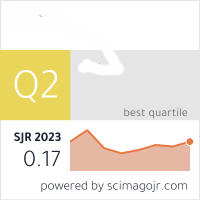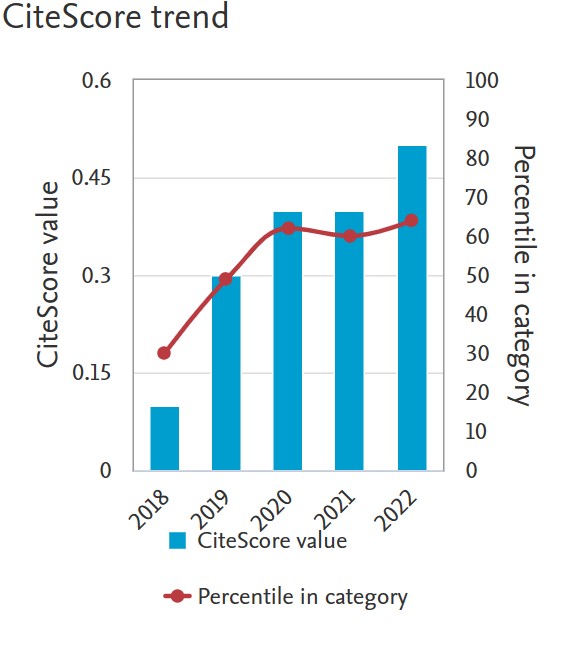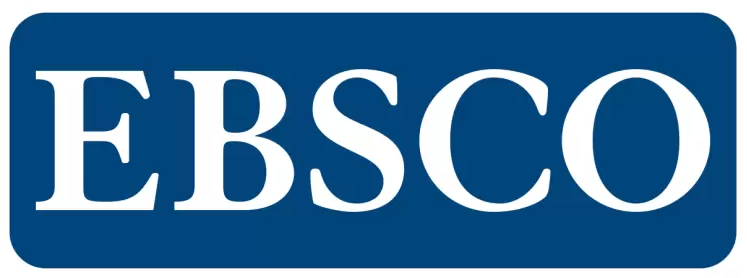The ampliative leap in diagnostics: the advantages of abductive inference in clinical reasoning
Keywords:
clinical reasoning, the ampliative leap, clinical diagnosis, logical inferences in diagnosticsAbstract
Examining diagnostics in logical terms, attention is usually paid to the interaction between deductive and inductive reasoning.
his article discusses Ch.S. Peirce’s theory of abductive inference in the clinical diagnosis. The process of diagnostics is seen as a logical transition from the effect (patient’s symptoms and signs) to the cause (the current health disorder), which is the direc-tion common to abductive reasoning. For Peirce, abduction is performed through the transposition of the conclusion and the major premise in the categorical syllogism or, in his later writings, of the result and the rule. An emphasis is put on the amplia-tive leap from the premise (individual clinical signs and symptoms) to the conclusion (particular diagnosis) abduction features;the universal rule (the nosological unit) mediates between the individual clinical picture and the particular patient’s diagnosis.
The abductive inference draws on Kantian view on reflective judgment and G.B. Vico’s ideas about imaginative univer-sals. Reflective judgment aims at identifying a concept for some sensible data, whereas imaginative universals are not rational concepts but contain general characteristics like the regular concepts; formation of an imaginative universal resembles giving a diagnosis where an imagination drive inference is performed based on the combination of general elements of the relevant nosological unit and individual clinical signs and symptoms.
Attention is also paid to the principles of coherence and teleology in performing an abductive inference in diagnostics as well as to the dual criterion of its truthfulness based both on coherence and correspondence. Examples from various medical fields are offered to illustrate the validity of the above logical claims in clinical practice.
Downloads
References
Antiseri D, Federspil G, Scandellari C (2003) Epistemologia, clinica medi-
ca e la “questione” delle medicine “eretiche”. Rubbettino Editore. 240 p.
Ballinger A, Patchett S (2007) Pocket Essentials of Clinical Medicine. 4th
edition. Edinburgh: Sounders Elsevier.
Federspil G (2010) Diagnosi. Filosofia della medicina. Ed. by Pagnini,
A. Roma: Carocci editore. 583 p.
Gabbani C (2013) Epistemologia e clinica. Tre saggi. Pisa: Edizioni ETS.
Gadamer H-G (1996) Enigma of Health: e Art of Healing in a Scien-
tific Age. Stanford, CA: Stanford University Press. 192 p.
Ginzburg C (1979) Spie. Radici di un paradigma indiziario. Crisi del
la ragione. Nuovi modelli nel rapporto tra sapere e attività umane.
A cura di Aldo Gargani. Torino: Einaudi Paperbacks. 366 p.
Groopman J (2008) How Doctors ink. Boston: Houghton Mifflin
Company. 307 p.
Hunter KM (1993) Doctors’ Stories: e Narrative Structure of Medical
Knowledge. Princeton: Princeton University Press. 238 p.
Kaag J (2014) inking through Imagination: Aesthetics in Human Cog-
nition. New York: Fordham University Press. 272 p.
Kant I (2007) Critique of Judgement. Oxford: Oxford University
Press.
Kant I (1998) Critique of Pure Reason. Cambridge: Cambridge Univer-
sity Press.
Levi I (2006) “Beware of Syllogism Statistical Reasoning and Conjec-
turing according to Peirce.” e Cambridge Companion to Peirce.
Cambridge: Cambridge University Press. p. 257–286.
Longmore M, Wilkinson I, Davidson E et al. (2010) Oxford Handbook of Clin-
ical Medicine. e 8th edition. Oxford: Oxford University Press. 863 p.
Marcum JA (2008) An Introductory Philosophy of Medicine: Humanizing
Modern Medicine. Springer. 376 p. DOI: 10.1007/978-1-4020-6797-6.
Murphy EA (1997) e Logic of Medicine. Baltimore: e John Hopkins
University Press.
Peters A (2007) BMA Illustrated Medical Dictionary. London: DK.
Verene DP (2009) Speculative Philosophy. Lanham: Lexington
Books.
Vico GB (1984) e New Science of Giambattista Vico. Ithaca: Cornell
University Press.
Downloads
Published
Issue
Section
License
You are free to:
- Share — copy and redistribute the material in any medium or format for any purpose, even commercially.
- Adapt — remix, transform, and build upon the material for any purpose, even commercially.
- The licensor cannot revoke these freedoms as long as you follow the license terms.
Under the following terms:
- Attribution — You must give appropriate credit , provide a link to the license, and indicate if changes were made . You may do so in any reasonable manner, but not in any way that suggests the licensor endorses you or your use.
- No additional restrictions — You may not apply legal terms or technological measures that legally restrict others from doing anything the license permits.
Notices:
You do not have to comply with the license for elements of the material in the public domain or where your use is permitted by an applicable exception or limitation .
No warranties are given. The license may not give you all of the permissions necessary for your intended use. For example, other rights such as publicity, privacy, or moral rights may limit how you use the material.











